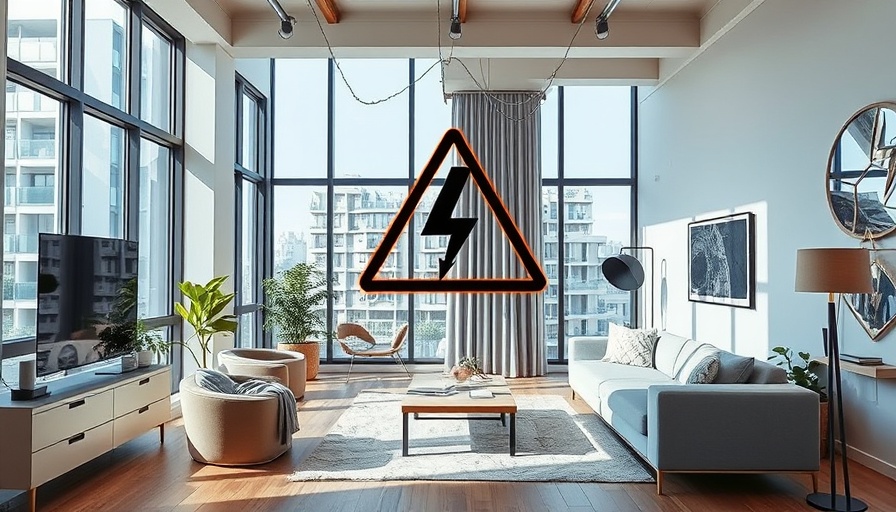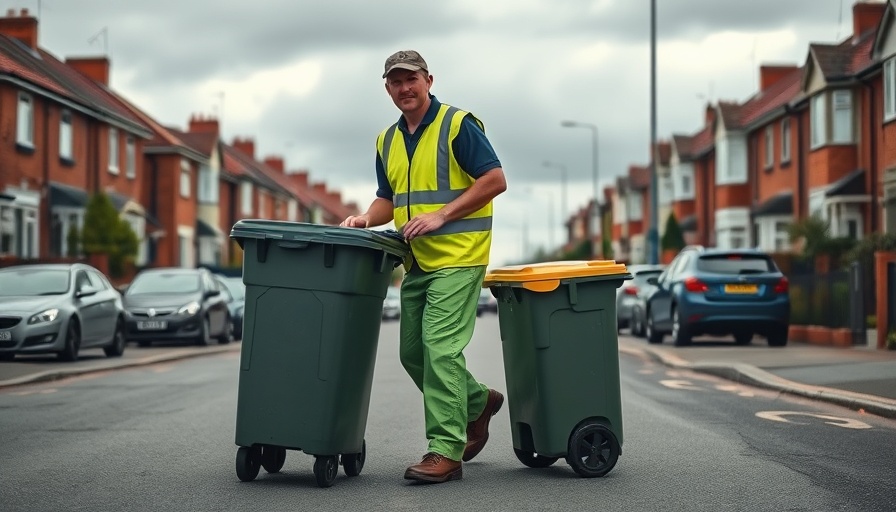
The Importance of Electrical Safety for Landlords
As a landlord, ensuring the safety of your rental properties is paramount, particularly when it comes to electrical safety. For young homeowners in bustling London, the fast-paced lifestyle often leads to overlooking critical aspects of property management. However, electricity can be a silent threat in any home, and failing to abide by legal requirements can not only threaten tenants' safety but also your financial stability as a landlord.
Understanding Your Legal Duties
In the UK, there are explicit legal responsibilities for landlords concerning electrical safety. It’s vital to grasp that you must guarantee the electrical systems in your property are safe not only at the start of a tenancy but also throughout its duration. This includes not just the wiring, sockets, and lighting but also any electrical appliances you might provide – think cookers and even the kettle in the kitchen.
With regulations tightening, as of July 2020, landlords are now required to have all fixed electrical installations inspected and tested at a minimum of every five years. For existing tenancies, this rule came into effect in April 2021. Non-compliance can attract substantial fines, up to £30,000, emphasizing that electrical safety is indeed non-negotiable.
Organizing Qualified Inspections
To comply with these regulations, scheduling a comprehensive Electrical Installation Condition Report (EICR) every five years, or sooner if advised, is crucial. This report will assess the condition of your electrical installations, identify potential hazards, and suggest necessary repairs or upgrades. Should the EICR designate any issues as Category 1 or Category 2 dangers, repairs must be addressed within 28 days, demonstrating the urgent need for diligent management.
Keeping Records is Essential
Clarity and organization are your best allies in navigating the requirements of electrical safety. Always keep accurate records of inspections and repair reports. Sharing this information with your tenants not only enhances trust but also complies with statutory obligations. This transparency can turn a potential point of contention into a demonstration of your commitment to tenant safety and well-being.
Elevating Safety Standards with Technology
Today's technology provides landlords with tremendous opportunities to enhance electrical safety and efficiency. Smart home systems, which monitor electrical usage and detect faults, can dramatically mitigate risks. Devices like smart plugs or energy monitoring systems not only contribute to safety but can also attract savvy tech-minded tenants who value innovation in their living spaces.
Networking with Local Professionals
Partnering with local estate agents and certified electricians can make the process of maintaining electrical safety smoother. These professionals are well-versed in the latest legislation and can provide valuable resources and support in ensuring compliance. They can help streamline inspections and coordinate quick responses to any issues that arise, thereby reducing your stress as a landlord.
Final Thoughts and Call to Action
With the responsibility of renting property comes a significant duty of care to your tenants. Prioritizing electrical safety isn’t merely a legal obligation—instead, it reflects a deeper commitment to the well-being of your residents and the integrity of your investment.
If you’re navigating the realm of property management, consider collaborating with experienced professionals who can assist you in maintaining compliance and enhancing your rental offerings. Your tenants deserve a safe home, and your vigilance in electrical safety will not go unnoticed in the vibrant London property market.
This commitment to safety can yield positive outcomes, from satisfied tenants to increased referral business. Don't wait for a compliance issue to surface; take action now!
 Add Row
Add Row  Add
Add 




Write A Comment